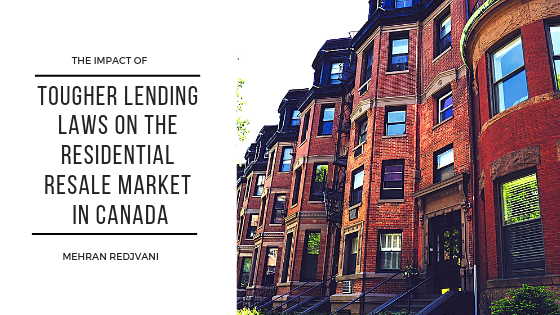Put into effect on January 1, 2018, the new Canadian mortgage rules have made it harder to qualify for a mortgage. The new regulation requires mortgage stress tests to assess whether the borrower can withstand higher interest rates. The tightening on mortgage lending is in hopes to bring more balance to the country’s real estate market.
The changes to the rules include a new minimum qualifying rate even for buyers with a downpayment of 20% or more. The new minimum qualifying rate must be the greater of the five-year benchmark rate published by the Bank of Canada or +2% of the contractual mortgage rate. This is where the mortgage stress test comes into play. The stress test looks at would-be borrowers finances and shows that they are still able to make payments if interest rates go up or are in a situation where they are receiving less income.
While stress test rules do not apply to mortgage renewals unless they are changing borrowers, the stress test has made it more difficult to get a mortgage for a new house without having stellar financial credentials.
There are also new restrictions on certain lending arrangements that are used to circumvent LTV limits. Loan-to-value measurements look at the ratio of a loan to the value of an asset purchased and is commonly used by banks to represent the ratio of the first mortgage line to the percentage of the total appraised value of the property. With the changes in the rules, federally regulated financial institutions are prohibited from arranging another lender a mortgage that circumvents the institutions maximum LTV ratio.
The market conditions leading up to April 2017, where the markets peaked, caused the Ontario government to introduce a non-residential speculation tax. The NRST puts a 15% tax on the acquisition or purchase of residential property in the Greater Golden Horseshoe Region (GGH) if the buyer isn’t a citizen or permanent resident of Canada. The NRST officially took effect on April 21, 2017, and applies to foreign entities or taxable trustees who purchase or acquire residential property in the GGH.
Now that these laws have been in place for over a year, many individuals are calling for the laws to be reviewed and toned down. The CMHC is pushing back and claims that its assessment of overvaluation has changed from moderate to high, which is easing the conditions of overheating in the market. They also claim that housing prices are returning to a level supported by market fundamentals. With their continued pushback, it will be hard to get any of the new laws reduced any time soon.

